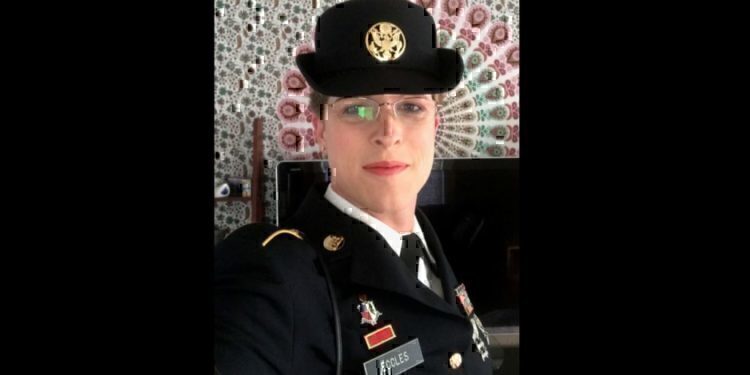Freyja has been serving the U.S. Army for over twenty years in a variety of roles. As a Non-Commissioned Officer, she serves as a Medical Laboratory Specialist and is a SARC (Sexual Assault Response Coordinator) in San Antonio, Tx. She is also a Transgender Woman.
A Transgender Woman is a woman who was assigned male at birth, or AMAB for short. Freyja felt feminine from a young age, exploring her femininity by dressing up in her sister’s clothes. Feeling constricted by what was ‘acceptable,’ she did her best to be masculine. In doing so, she enlisted in the Army Reserves in 1999, longing to be a civil engineer, but instead assigned as a heavy construction equipment operator.
After 9/11, she felt the need to serve her country in a more profound way. She transitioned to Army active duty, all while still presenting as male. In 2003, she deployed to Iraq for the invasion. She was injured in a humvee accident thirty days before going home. Due to this, she was assigned a new MOS as a Medical Laboratory Specialist. When Don’t Ask, Don’t Tell was repealed, she was hopeful, but those permissions didn’t extend to transgender service members.
In her new MOS, she worked in the lab overnight; during the day she explored her femininity through makeup and fashion. She chose the name Freyja, inspired by her Icelandic roots. Maintaining her masculine appearance was exhausting. During a tour in Korea, she’d wear dresses in her barracks room and work on her sewing projects for the local community theatre. Times like these were a saving grace, where she could fully express herself as a woman. Looking back, she realizes a fire alarm could have outed her – being dressed in feminine clothes in male barracks could have cost her her job. A reality many transgender military members still face.
After Korea, she was stationed in San Antonio and started making friends with other transgender women. In January of 2018, after years of cross-dressing and exploring, Freyja realized and embraced her transgender identity. Soon after, she began her medical transition. Therapy, starting hormones, changing her birth certificate, driver’s license, and changing her gender marker with the Army, were all parts of her journey. She has a supportive doctor and is aware not everyone is so lucky. Her transition was before the current policy was put into place. The policy, put in place in 2019, prevents transgender military members transitioning while serving. For those who are transgender and serving, Freyja encourages them to stay strong and reach out to SPART*A, a group comprised of transgender military service members.
Freyja explains, ‘a transition is a personal journey. It doesn’t always start and end with medicine and/or surgery (Medical transition). There is also name change and gender marker change (Legal transition), dressing differently, going by nicknames, and using different pronouns (Social transition).’
When asked what people aren’t aware of, she replied, ‘Transgender service members want the opportunity to serve just like everyone else. The transgender community has been in the US military as long as we have had a military.’ Being transgender isn’t all Freyja is – she’s a mother, a friend, a military service member, seamstress, and a superb cook. All in all, one hell of a woman.








